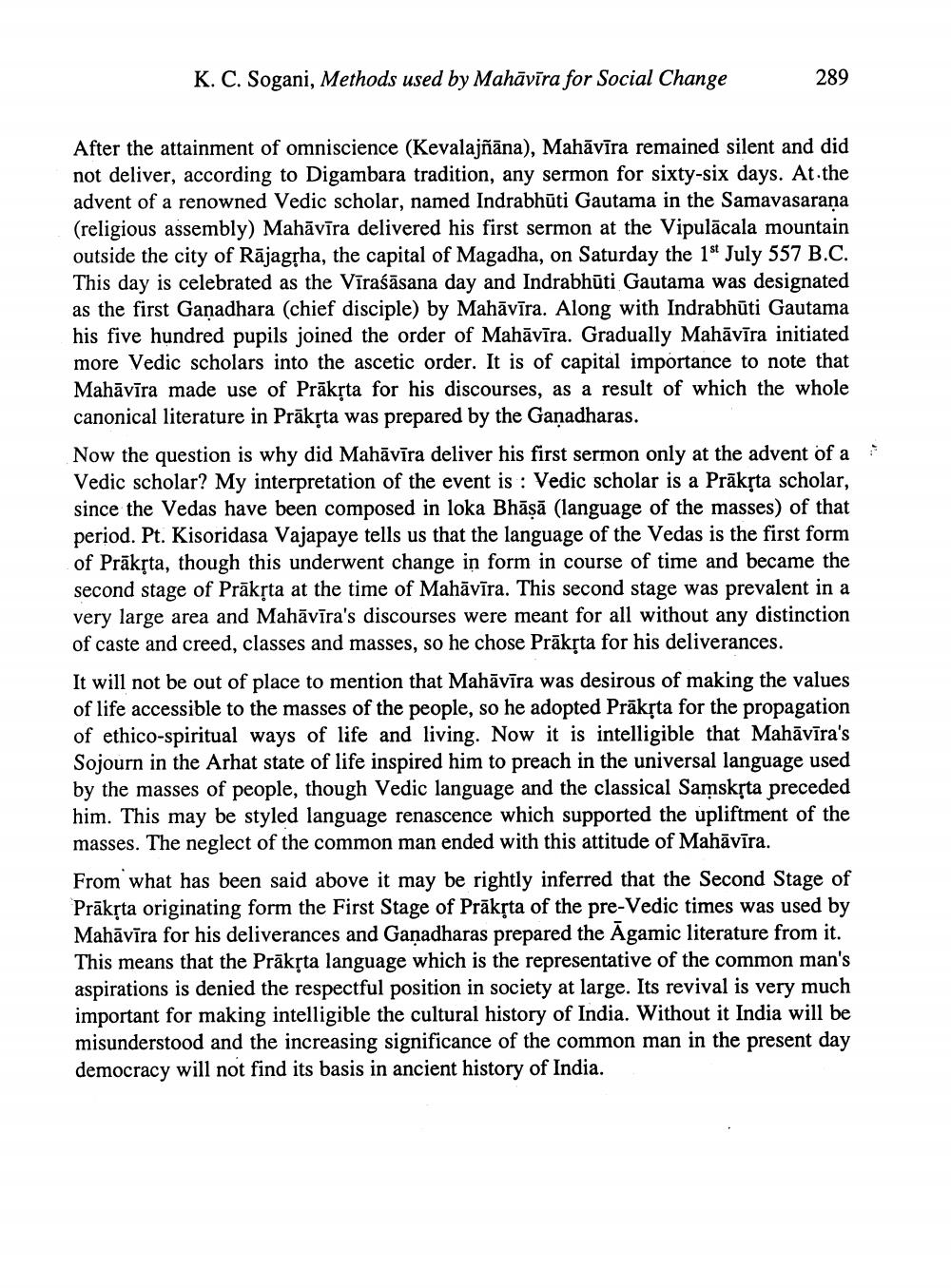________________
K. C. Sogani, Methods used by Mahāvīra for Social Change
289
After the attainment of omniscience (Kevalajñāna), Mahāvīra remained silent and did not deliver, according to Digambara tradition, any sermon for sixty-six days. At the advent of a renowned Vedic scholar, named Indrabhūti Gautama in the Samavasarana (religious assembly) Mahāvīra delivered his first sermon at the Vipulācala mountain outside the city of Rājagpha, the capital of Magadha, on Saturday the 1st July 557 B.C. This day is celebrated as the Vīraśāsana day and Indrabhūti Gautama was designated as the first Gañadhara (chief disciple) by Mahāvīra. Along with Indrabhūti Gautama his five hundred pupils joined the order of Mahāvīra. Gradually Mahāvīra initiated more Vedic scholars into the ascetic order. It is of capital importance to note that Mahāvīra made use of Prāksta for his discourses, as a result of which the whole canonical literature in Prāksta was prepared by the Gañadharas. Now the question is why did Mahāvīra deliver his first sermon only at the advent of a : Vedic scholar? My interpretation of the event is : Vedic scholar is a Prāksta scholar, since the Vedas have been composed in loka Bhāsā (language of the masses) of that period. Pt. Kisoridasa Vajapaye tells us that the language of the Vedas is the first form of Prāksta, though this underwent change in form in course of time and became the second stage of Präkrta at the time of Mahāvīra. This second stage was prevalent in a very large area and Mahāvīra's discourses were meant for all without any distinction of caste and creed, classes and masses, so he chose Prāksta for his deliverances. It will not be out of place to mention that Mahāvīra was desirous of making the values of life accessible to the masses of the people, so he adopted Prāksta for the propagation of ethico-spiritual ways of life and living. Now it is intelligible that Mahāvīra's Sojourn in the Arhat state of life inspired him to preach in the universal language used by the masses of people, though Vedic language and the classical Samskrta preceded him. This may be styled language renascence which supported the upliftment of the masses. The neglect of the common man ended with this attitude of Mahāvīra. From what has been said above it may be rightly inferred that the Second Stage of Prāksta originating form the First Stage of Prākşta of the pre-Vedic times was used by Mahāvīra for his deliverances and Ganadharas prepared the Agamic literature from it. This means that the Prāksta language which is the representative of the common man's aspirations is denied the respectful position in society at large. Its revival is very much important for making intelligible the cultural history of India. Without it India will be misunderstood and the increasing significance of the common man in the present day democracy will not find its basis in ancient history of India.




